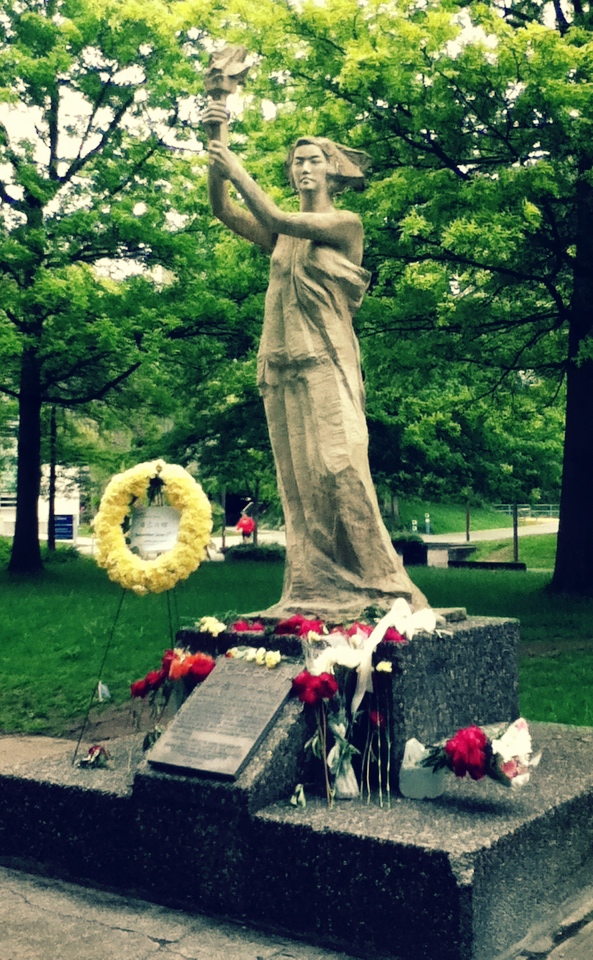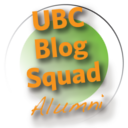As I pack my bags to leave campus this week, I think about the past five years at UBC and what I’ve learned.
Inspired by Five Rules for Life, a website that collects different people’s five “rules” or guidelines on how to live a life, I decided to try and sum up my own guidelines for making the most out of your time at UBC.
Everyone’s journey is different and this is not meant to be any kind of exhaustive list or dictum, but these are the principles that I wish I’d known to follow when I first got here. Some of these are principles that worked for me; others are what I wish I’d done. I’d be happy to hear what you think of these guidelines below, and any suggestions for what you think would make for a satisfying, memorable time at UBC.
1) Whenever possible, study a subject that you love.
This is one of the most amazing experiences and privileges that a university education has to offer, so take advantage. Even if you aren’t able to pursue your preferred subject as your major, do your best to at least take an elective that you like — when you enjoy your studies, you are more likely to do better in class, struggle less with the material, and feel more confident about your abilities.
- Not sure what your options are? Take a look at your faculty’s page on the UBC Calendar and find a full list of degrees conferred.
- Don’t know what you can do with a specific degree after graduation? Speak to Career Services and check out suggestions for what you can do with your major.
2) Get involved. Find your niche.
UBC is a big campus and it’s easy to feel lost and alone amidst a sea of thousands. Combat the temptation to stick solely to your books (especially for commuter students) and find out about engagement opportunities. Try these out until you find a community of like-minded people you are comfortable around. If you don’t find your niche on the first ten tries, keep trying until you get there.
- Want to find out what you can do? Check out the Centre for Student Involvement’s aggregated list of student involvement opportunities. Popular choices include: Rez Life (on-campus living), REC (sports), and AMS Clubs (over 300 of them).
3) Try one or two new things every year.
Whether it’s taking a class in an unknown subject, a new volunteer opportunity or an original project, make a point of trying to push yourself beyond your comfort zone at least once or twice a year. University is a rare time when you’re at liberty to try different things with little risk of consequence, so make the most of it. Give yourself the chance to have mind-expanding, ‘woah’ moments.
- A program for your radar in second year and above: Student Directed Seminars (not mentioned in the CSI list).
- If you can afford it, seriously consider going abroad for a part of your degree, whether for an academic exchange, research, or international service learning. Visit Go Global for travel and funding options.
4) Work, study and play in moderation.
Get work experience before you graduate — this is what counts most when you’re looking for a job. At the same time, don’t burn yourself out: after working almost non-stop for the last five years while a full-time student, I wish I’d given myself more breaks. If I could do it again, I’d either work full-time during the summer and study full-time during school with no part-time work, or worked part-time while at school full-time and taken the entire summer off.
- The UBC Learning Commons gives good guidance on questions like time management, effective study methods and presentation skills.
- Find out about co-op opportunities in Arts, Commerce, Engineering, Forestry, Kinesiology and Science at the UBC Co-op website.
5) Be good to yourself.
Your time at UBC will not be all rainbows and sunshine. Hard times happen. When they do, don’t be afraid to reach out and get the support you need, and don’t beat yourself up for it. Fellow Blog Squad member Miriam once wrote a letter to first-years that I think sums up everything I want to say.
- Do you have concerns about your physical or mental health? A list of resources you can access is available here.
- AMS Speakeasy is a confidential peer support service where trained student volunteers will listen to your concerns about anything and will point you to both on- and off-campus resources as needed.
—
To all new and returning students, I really hope you enjoy your time here. I’ve had the great good fortune of being part of the UBC Blog Squad since its inception in 2007 until now. As the Blog Squad moves in new directions and as I move on to the next chapter of my life post-graduation, I hope these last comments function as a useful closure to this blog. It’s been grand.
For those of you wondering what’s next for me: I’m moving off campus this weekend and am wrapping up my contract with the UBC Arts Co-op Program, which ends the first week of September. After that, I’m going to travel Western Europe for a few weeks and may visit Asia again before I come back to Vancouver to hunt for a more long-term job.
And with that — goodbye, good luck and have fun!


